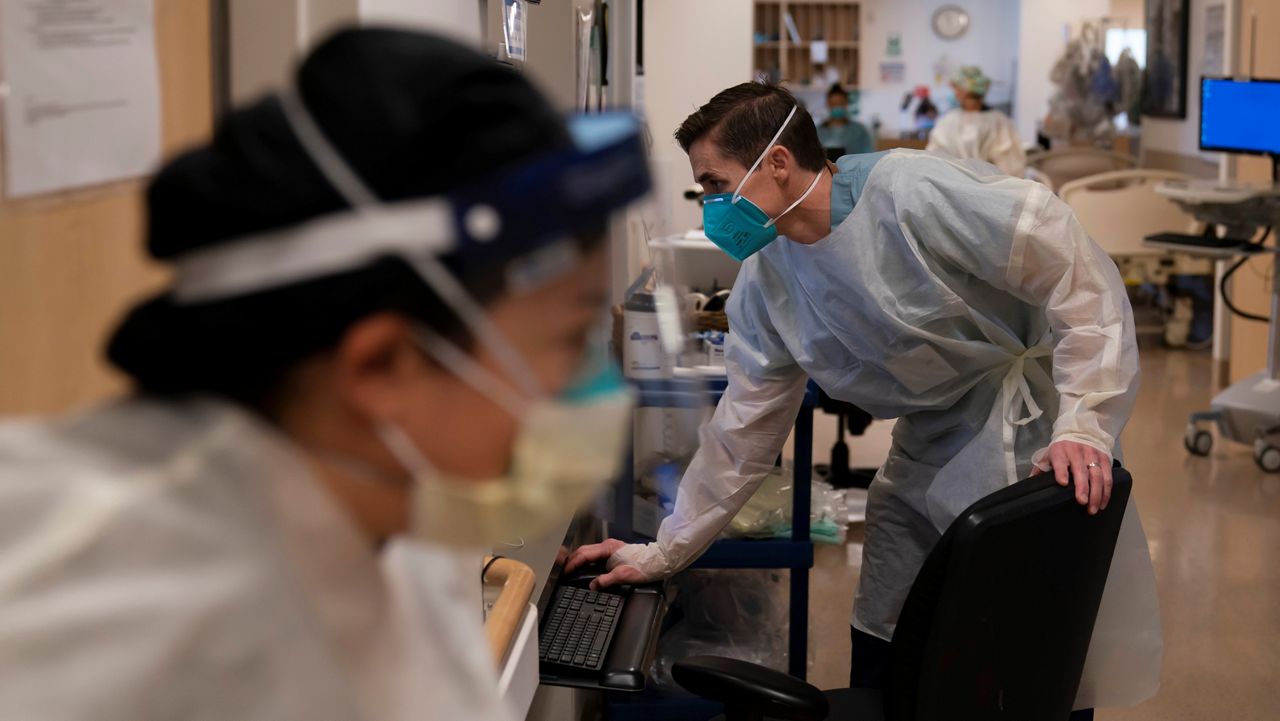SACRAMENTO, Calif. (AP) — California Gov. Gavin Newsom said Thursday he will impose a new stay-at-home order for areas where capacity at intensive care units falls below 15%.
What You Need To Know
- The new stay-at-home order will be imposed for areas where capacity at intensive care units falls below 15%
- The new order divides the state into five regions
- Newsom said none of the regions currently meet the threshold for the new rules
- When they do, the state will order them to close hair salons and barber shops, limit retail stores to 20% capacity and only allow restaurants to offer take-out and delivery
Newsom announced the new plans amid an unprecedented surge of new coronavirus cases in the nation’s most populous state amid fears that hospitals could be overwhelmed within weeks.
"The bottom line is, if we don’t act now, our hospital system will be overwhelmed," Newsom said. "That’s why today, we are announcing and introducing a regional stay at home order in the state of California."
The new order divides the state into five regions. Newsom said none of the regions currently meet the threshold for the new rules.
But the governor anticipated they would within a few weeks.
"All within just the next few weeks, our ICU capacity in these regions will drop below 15%," Newsom said.
When they do, the state will order them to close hair salons and barber shops, limit retail stores to 20% capacity, and only allow restaurants to offer take-out and delivery.
The rules don’t apply to school districts.
California on Wednesday reported more than 20,000 new coronavirus cases, the most ever in one day. A record 8,500 people are in hospitals, including more than 2,000 in intensive care units, leaving the state with fewer than 2,000 available intensive care beds.
Newsom — who is staying at home after three of his children were exposed to the virus — already has imposed restrictions, including a nighttime curfew in 51 of the state’s 58 counties, an area with nearly the entire state population of 40 million people.
The governor also announced travel would be restricted.
"We are also establishing a framework where all non-essential travel is restricted," Newsom said.
The governor emphasized that these measures were temporary.
"This is not a permanent state," Newsom said. "There is light at the end of the tunnel, we are a few months away."
Los Angeles County, the nation's most populous with 10 million residents, has imposed stay-at-home restrictions and a three-week ban on in-person restaurant dining because of what county health director Barbara Ferrer called “terrifying increases in numbers.”
On Wednesday night, Los Angeles Mayor Eric Garcetti issued a city order in apocalyptic tones telling people to remain in their homes.
LA “is now close to a devastating tipping point" that could overwhelm the hospital system, “in turn risking needless suffering and death," the order said.
The order also bars gatherings of people outside of immediate households with some exceptions and requires travelers arriving from outside the state to fill out an online form. It allows retail businesses to remain open for in-person shopping subject to a county curfew already in place.
Garcetti also urged police and the city attorney to enforce the order, which carries misdemeanor penalties.
In Santa Ana, a city of more than 300,000 people in Orange County, the City Council authorized a mandatory face mask rule and called for police to enforce it.
Overall, California has reported more than 1.2 million COVID-19 cases and more than 19,300 deaths. The state reported 20,759 new cases on Wednesday, surpassing the previous high of 18,350 set just last week.
Public health officials have said the current figures don’t include the COVID-19 infections likely to arise from Thanksgiving holiday travel and gatherings that ignored social distancing precautions.
Those cases probably will start showing up in hospitals around Christmas, said Brad Pollock, associate dean for public health sciences at the University of California, Davis School of Medicine.



